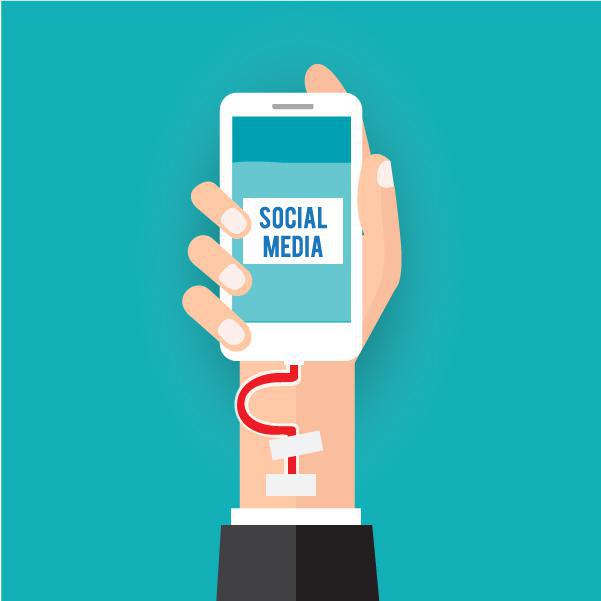Social media has become an integral part of our lives, and its usage has increased exponentially over the years. While social media platforms provide a convenient way to stay connected with friends and family, they can also be addictive and affect our productivity as students. Spending hours scrolling through social media feeds, checking notifications, and engaging in online conversations can take a toll on our mental health and academic performance. If you are a student struggling with social media addiction, here are some ways to quit and regain control of your life.
Ways to Quit
1. Acknowledge the Problem
The first step to overcoming any addiction is acknowledging the problem. Admitting that you have a social media addiction and that it’s affecting your daily life is the first step toward recovery. Be honest with yourself and identify how much time you spend on social media platforms each day and how it’s affecting your academic performance, social life, and mental health.
2. Set Goals
After identifying the problem, the next step is to set achievable goals. Start small and aim to reduce the time you spend on social media platforms gradually. For instance, you can set a goal to reduce your daily social media usage by one hour per day for the next two weeks. Once you have achieved this goal, you can set a new one and gradually reduce your usage further.
3. Find Alternatives
One of the reasons why social media addiction is so prevalent is that people use it as a form of escapism. Instead of facing real-life problems, people tend to spend more time on social media platforms. Find alternative ways to cope with stress and anxiety, such as exercising, reading a book, or hanging out with friends. You can also engage in activities that promote self-care, such as taking a relaxing bath or practicing meditation.
4. Remove Triggers
Social media platforms are designed to be addictive, and it’s easy to get caught up in the endless stream of content. One way to break the cycle of addiction is to remove triggers. For instance, you can turn off notifications, delete social media apps from your phone, or use browser extensions that block access to social media platforms.
5. Get Support
Quitting social media addiction can be challenging, and you may need support from friends, family, or a professional counselor. Talk to someone you trust about your struggles and seek their advice. You can also join support groups or online forums for people struggling with social media addiction. These groups can provide a safe space to share your experiences and learn from others.
6. Practice Mindfulness
Mindfulness is a powerful tool that can help you overcome social media addiction. Mindfulness involves being present at the moment and focusing your attention on the present. Practice mindfulness techniques, such as deep breathing or meditation, to help you stay present and focused on the task at hand. This can help reduce the urge to check social media platforms constantly.
Benefits Of Social Media Addiction
As an AI language model, I cannot state the benefits of social media addiction because there are no benefits to addiction. Addiction implies a loss of control and negative consequences in various areas of one’s life.
While social media platforms have their advantages, such as staying connected with friends and family, sharing ideas, and accessing information, addiction to social media can lead to detrimental effects such as decreased productivity, poor academic performance, sleep disturbances, anxiety, depression, and reduced social interaction.
It’s important to use social media platforms in moderation and with mindfulness to avoid addiction and maintain a healthy balance in our lives. As a language model, I can provide you with 10 potential benefits of using social media platforms in a moderate and mindful way:
- Staying Connected: Social media platforms allow us to stay connected with friends and family members who may be far away, enhancing our social support networks.
- Networking: Social media platforms can be used for professional networking and building connections that can lead to career opportunities.
- Accessing Information: Social media platforms provide access to a vast array of information, news, and updates that can be beneficial in various areas of our lives.
- Self-expression: Social media platforms allow individuals to express themselves and share their thoughts, ideas, and creativity with others.
- Awareness: Social media platforms can be used to raise awareness of important social and political issues, promoting positive change.
- Learning: Social media platforms can be used as a tool for learning, and accessing educational resources and tutorials.
- Entertainment: Social media platforms can provide a source of entertainment, such as funny videos, memes, or online games.
- Support Groups: Social media platforms can be used to connect with individuals who share similar interests or struggles, providing a sense of belonging and support.
- Marketing: Social media platforms can be used for marketing purposes, promoting businesses or products to a wider audience.
- Creativity: Social media platforms can be used as a platform for creative expression, sharing artwork, music, or other creative projects with a broader audience.
FAQ
1) What is social media addiction?
A: Social media addiction is a term used to describe excessive and compulsive use of social media platforms, leading to negative consequences in various areas of one’s life.
2) What are the negative effects of social media addiction?
A: Social media addiction can lead to a range of negative effects, including decreased productivity, poor academic performance, sleep disturbances, anxiety, depression, and reduced social interaction.
3) How can I tell if I have a social media addiction?
A: You may have a social media addiction if you spend a significant amount of time on social media platforms, experience anxiety or stress when you are not using social media, neglect important responsibilities or activities, or find it difficult to control your social media usage.
4) Can social media addiction be treated?
A: Yes, social media addiction can be treated. Treatment may involve behavioral therapy, cognitive therapy, mindfulness-based interventions, or a combination of these approaches.
5) How can I reduce my social media usage?
A: To reduce your social media usage, you can try setting goals, finding alternative activities, removing triggers, seeking support, and practicing mindfulness.
6) Is it possible to quit social media completely?
A: Yes, it is possible to quit social media completely. However, this may not be feasible or desirable for everyone. If you decide to quit social media, it’s important to have a plan in place and seek support from friends, family, or a counselor.
Conclusion
In conclusion, social media addiction can be detrimental to our academic performance, mental health, and social life. By acknowledging the problem, setting achievable goals, finding alternatives, removing triggers, getting support, and practicing mindfulness, you can overcome social media addiction and regain control of your life. Remember, breaking the cycle of addiction takes time and effort, but it’s worth it in the end.

